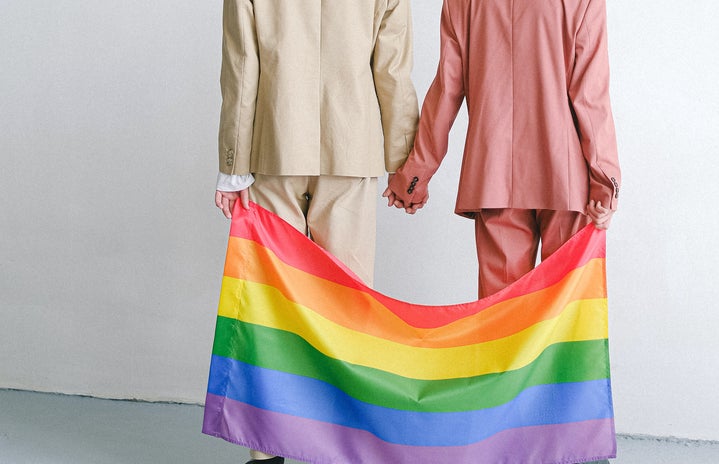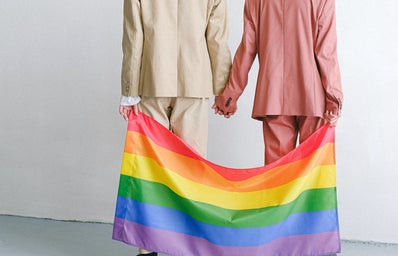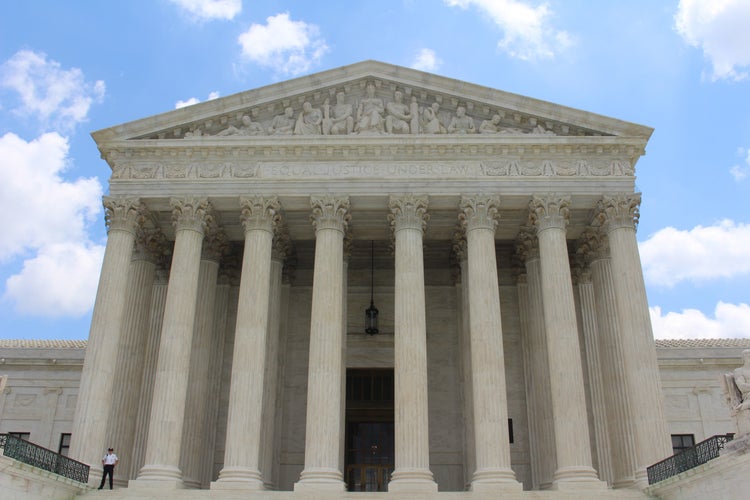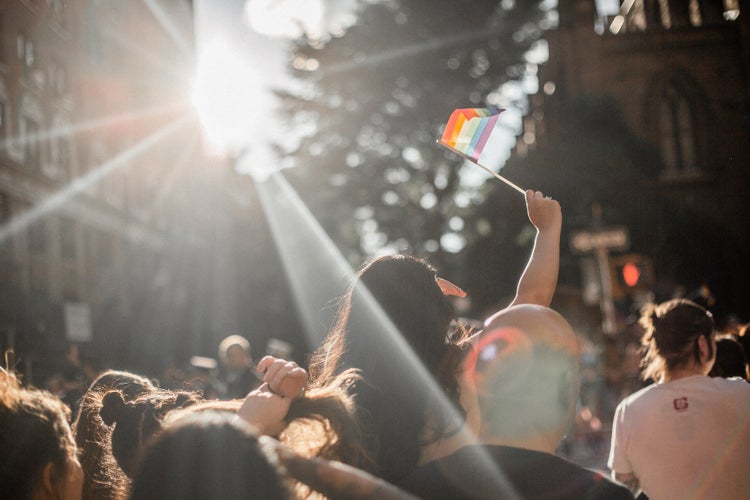On Monday, Dec. 5, the Supreme Court began to hear arguments for the case 303 Creative LLC v. Elenis, which deals with an issue the court has avoided for years. Until now, the Supreme Court has essentially avoided hearing cases involving business owners who believe providing services to the LGBTQ+ community challenges their individual beliefs and freedom. In this case, though, it’s an issue that’s right at the forefront, and could mean a lot to the LGBTQ+ community going forward.
The case in question looks at whether Lorie Smith, a Colorado web designer who creates custom wedding websites, is obligated under state law to provide her services for weddings of same-sex couples. Smith’s lawsuit is backed by the Alliance Defending Freedom, an organization that has backed a series of lawsuits of Christian business owners refusing to provide their services to same-sex weddings. Smith is an evangelical Christian opposed to same-sex marriage on religious grounds, and argues that her refusal to provide her services to same-sex couples is message-based. Smith says she will provide her services to anyone regardless of their identity (so, say someone who identifies as gay wants a website for their business, she will provide that), but according to NPR, Smith doesn’t want to provide her services to endorse a message that conflicts with her religious beliefs (so, for example, she wouldn’t want to create a wedding website for a gay couple). Though Smith’s motivation is religious, this case calls into question the First Amendment right to free speech. Smith’s lawyers say Colorado law is in violation of the First Amendment by obligating Smith to engage with speech she disagrees with.
In the case hearing held on Dec. 5, the state of Colorado focused its argument on its public accommodation law, in which Colorado’s solicitor general said Smith is required to provide the same services to same-sex couples as she would heterosexual couples. Colorado argued that to refuse to provide service on the basis of sexual orientation would be considered a form of status-based discrimination, which violates public accommodation law.
In the hearing, the three liberal justices argued against giving business owners an exemption, but the six conservative justices questioned how the law could require people to endorse causes they don’t. According to the Los Angeles Times, conservative justices Neil Gorsuch and Brett Kavanaugh proposed that the Court could “rule narrowly, but uphold the principle that people in business cannot be forced to promote messages they oppose.” Specifically, Kavanaugh suggested businesses could qualify for an exemption only if their work was not purely expressive and involved speech (so, a website designer could qualify, but a jewelry shop owner couldn’t), that way the number of businesses looking to take advantage of the exemption would be small.
The ruling on this case is expected to arrive in June of 2023. As this case is being heard in a majority conservative court, it has the potential to become a landmark case that enables the reduction of LGBTQ+ rights without directly attacking recent Supreme Court decisions that protect the right to same-sex marriage and existing laws that protect LBGTQ+ rights on the basis of sex. According to Politico, some legal analysts predict that conservative justices are more likely to incrementally reduce LBGTQ+ rights rather “than overturn a widely-accepted decision on same sex marriage rights.” Per Politico, civil rights advocates believe that this case poses a threat not only to LGBTQ+ rights, but also to laws preventing discrimination of other aspects of identity, such as race, gender, and religious beliefs.
Though legal analysts’ predictions are frightening, not all hope should be lost. Two years ago, conservative justices Gorsuch and Chief Justice John Roberts joined four liberal justices to issue a landmark ruling on LGBTQ+ rights in Bostock v. Clayton County. Justice Gorsuch wrote the opinion for the ruling, stating that the law protecting against discrimination on the basis of sex in the workplace also protected against discrimination of gay, lesbian, and transgender individuals.
As the case continues to move forward, the Supreme Court may finally draw a line for state, local, and the federal government on the long-standing issue of requiring businesses to provide LGBTQ+ people equal access to their services.




